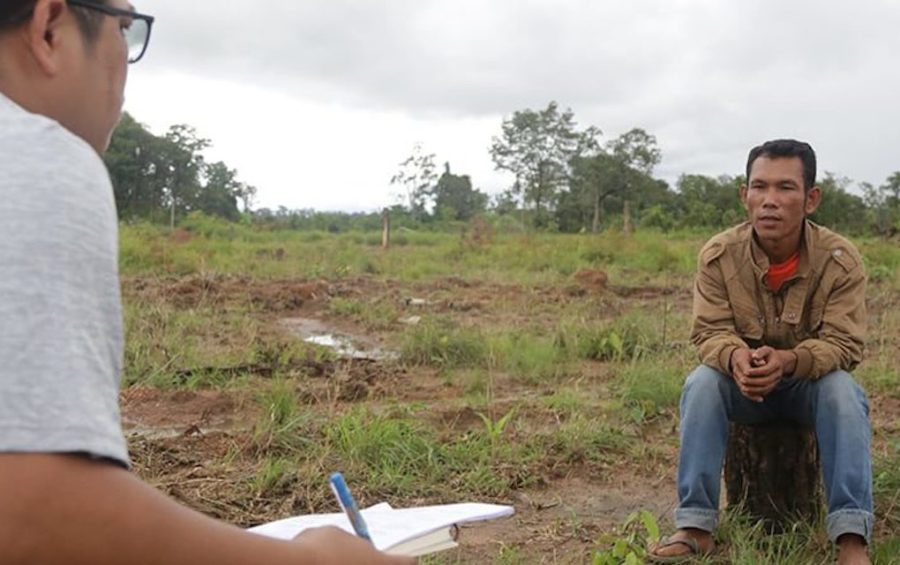The Ratanakkiri provincial government has demanded that all journalists inform authorities in advance before covering any news in the province in an edict that was backed by the Information Ministry.
In a letter dated July 5, the provincial administration said all journalists must report to the information department with identification and inform officials of their intentions before reporting on any stories.
It said unethical journalists in the past had caused problems in the province, and the practice would improve social order and the professionalism of the news industry.
Thorng Savon, the governor of Ratanakkiri, refused to talk to VOD about the issue on Friday, saying he could not confirm the reporter’s identity over the telephone.
“How can I know that you are a reporter at VOD?” Savon asked. “I won’t say anything now because I cannot see your face, because you did not verify anything with me. You just called and asked me … so if you have anything, just come and ask me at the province.”
Journalists in the country have been under increasing pressure over the past two years, with some reporters saying they have been trailed by local police when traveling for interviews.
Reporters taking bribes from officials and sources, including to withhold the publication of stories, however, has also been a long-standing issue in the country, including some reports of extortionists posing as journalists.
Information Ministry spokesman Phos Sovann said he supported the Ratanakkiri authorities’ order to require that reporters inform them before covering news in their jurisdictions.
The ministry had previously advised other provinces to do the same in order to prevent people from pretending to be reporters, Sovann said.
The spokesman acknowledged that there was nothing in the Press Law that supported such directives. He said it would not affect access to information and would rather better protect the safety of reporters.
“In order to be manageable, they should inform provincial information departments that ‘I’m going to cover news in this province,’” Sovann said. “Some foreign reporters who come to cover stories in our country also do the same. They have to ask permission.”
However, May Titthara, the Khmer Times’ national news editor, said the Ratakkiri authorities’ order amounted to a restriction on the work of professional reporters.
“The requirement affects the freedom of reporters because reporters have the right to cover stories,” Titthara said. “For example, if they are conducting an investigation, they need to be able to go do their story.”
Professional reporters already make a point of approaching relevant officials for comment and informing them of their intentions for a story, he said.
“But issuing a letter requiring reporters to inform them in advance is a kind of restriction against reporters,” Titthara said.
Cambodia’s ranking under Reporters Without Borders’ World Press Freedom Index has dropped in each of the past two years as dozens of radio stations were shut down and independent newsrooms closed amid pressure from the government.
(Translated and edited from the original article on VOD Khmer)













